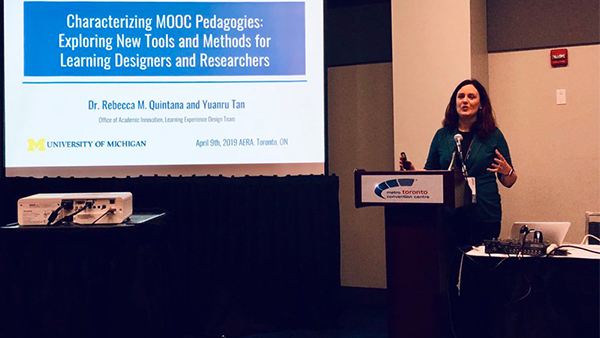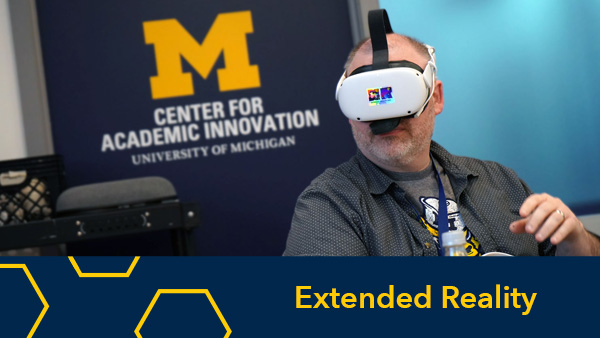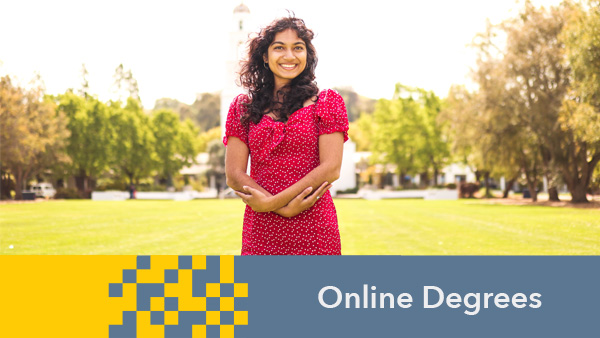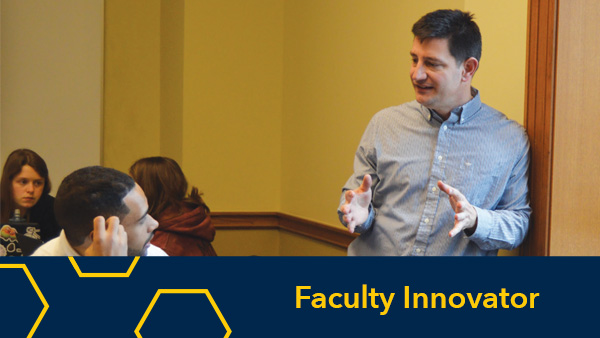Rebecca Quintana, Learning Experience Design Lead
@rebquintana
Yuanru Tan, Learning Experience Designer for Accessibility
@YuanruTan
Ricky LaFosse, Compliance and Policy Lead
@rglafosse
Jeff Bennett, Design Manager
AERA in Toronto
This year’s annual meeting of the American Educational Research Association (AERA) in Toronto, Ontario brought together a community of more than 14,000 educators, researchers, policymakers, and school leaders. Over the five-day conference, attendees navigated through a phonebook-sized program of over 600 sessions featuring more than 6,000 papers. With this year’s theme, “Leveraging Education Research in a ‘Post-Truth’ Era: Multimodal Narratives to Democratize Evidence,” many sessions contributed to centuries-old conversations on expanding access to educational opportunities and welcoming a greater diversity of learner and educator perspectives in educational policy, research, and design.
Surrounding the Toronto Metro Convention Center and three nearby hotels needed to accommodate such a large conference, the city of Toronto offered its guests an endless supply of entertainment, fine dining, vibrant neighborhoods, and beautiful parks. As a city that lives up to its international label, a short walk downtown can feel like a trip across the globe.
Several staff members from the Office of Academic Innovation attended this year’s meeting. Rebecca Quintana and Yuanru Tan, two members of our Learning Experience Design team, presented their research on learning design in MOOCs in two different sessions. One of our newest team members, Ricky LaFosse, presented a paper he co-authored with former colleagues at Indiana University, which focused on distance education compliance challenges. Jeff Bennett, Design Manager, presented MOOC design research with Academic Innovation co-authors in a structured poster session, along with doctoral student Alison Bressler, from the School of Environment and Sustainable Studies. The School of Education had a strong presence at AERA, including participation from Professor Chris Quintana who contributed to the structured poster session with Academic Innovation staff.
Session Types and Reflections from Presenters
AERA sessions now come in ten varieties, including off-site visits and tours. Presenting authors from Academic Innovation briefly describe their experiences engaging and presenting in just three of these formats.
The Paper Session: Reflections from Rebecca Quintana, Learning Experience Design Lead; Yuanru Tan, Learning Experience Designer for Accessibility
A typical structure for a Paper Session allows authors to present their papers in a 10-15 minute time slot. Usually, four or five papers investigating similar research topics are grouped in one paper session. Questions and commentary from the audience follow each presentation. At the conclusion of the paper presentations, a discussant (an expert in the field covered by the paper session) provides prepared observations and critiques. Rebecca and Yuanru presented their research Characterizing MOOC Pedagogies: Exploring Tools and Methods for Learning Designers and Researchers, in a paper session titled MOOCs: Pedagogies, Participation, and Perspectives. Their talk highlighted the work they have done to refine the Assessing MOOC Pedagogies (AMP) instrument, which was developed by Professor Karen Swan and her colleagues. Interestingly, the AMP instrument was based on a framework for computer-based education developed in the 1990s by Professor Thomas Reeves, who was the “virtual” discussant for our session. In his recorded remarks, Dr. Reeves encouraged us to consider how the refined AMP instrument could be used in educational design research that seeks to produce more effective MOOCs. He also pointed us to a book he co-edited on the subject called Conducting Educational Design Research. We look forward to diving into the book, which he has sent by mail to our team!

The Roundtable Session: Reflections from Ricky LaFosse, Compliance and Policy Lead
Roundtable sessions, as the name would imply, position presenters and guests across from each other at a table to encourage more interaction and conversation than a paper session might allow. For this session, presenters were paired together by theme at the same table—in our case, “Organizational Leadership as a Praxis for Higher Education Institutional Change.” With so many presenting groups scheduled at the same table, even a session scheduled for 8 a.m. on a Saturday was well attended.
Going first, a former colleague and I briefly described the contents of our paper, What Happens When Compliance Officers and Online Educational Design and Support Mingle?, and not surprisingly, the discussion in this group quickly moved toward practical implications and leadership strategies. Our table of higher education administrators discussed how to engage faculty and course designers in compliance efforts and guidance for high-risk areas, considering our presentation highlighted how distance education is moving closer to individual course decisions. Discussion of the other two featured papers evolved similarly, with practical significance being of paramount importance. Within the 90 minutes allotted, we covered an impressive range of topics and strategies. Given the intimate session format, it was also quite easy to exchange contact information and continue these conversations after the conference.
The Structured Poster Session: Reflections from Jeff Bennett, Design Manager
After five days of presentations, our intrepid team still had one more session to go. In the last hour of the conference, we participated in a structured poster session titled “Innovating MOOC Pedagogies,” organized by Rebecca Quintana and her colleague, Hedieh Najafi, from the University of Toronto. The session featured U-M authors on four of seven papers/posters and was a great showcase of the diverse educational design research creating innovative, effective, and high quality MOOCs.
The unique Structured Poster Session format tasks authors with presenting the central message of their paper in four minutes or less, after which attendees may visit authors at their posters and receive feedback. Following this informal discussion opportunity, the authors assemble in a panel and a discussant surfaces important aspects from each paper and makes connections to broader themes across the papers. Audience members may engage in a question and answer period with the authors.
Professor Carol Rolheiser chaired the session alongside discussant Professor Jim Hewitt, both from the University of Toronto. Professor Chris Quintana, Rebecca Quintana, and I shared our work, Exploring the Integration of Project-Based Learning Approaches into MOOCs. Interestingly, while our poster and research primarily focused on sharing novel ways we are implementing project-based learning into the MOOC context, many audience questions centered on the use of software tools within U-M MOOCs. It was a great example of how socializing our team’s work can spark ideas for MOOC practitioners beyond U-M. Authors who participated in the poster session hope to assemble a special issue of a journal to expand and share each paper with a wider audience.
The AERA conference experience was a very positive one for our team members. In addition to having the opportunity to present Academic Innovation research to an international audience, it allowed team members to reflect on emerging research from colleagues outside of the University of Michigan and to consider how new ideas might impact our ongoing work.


